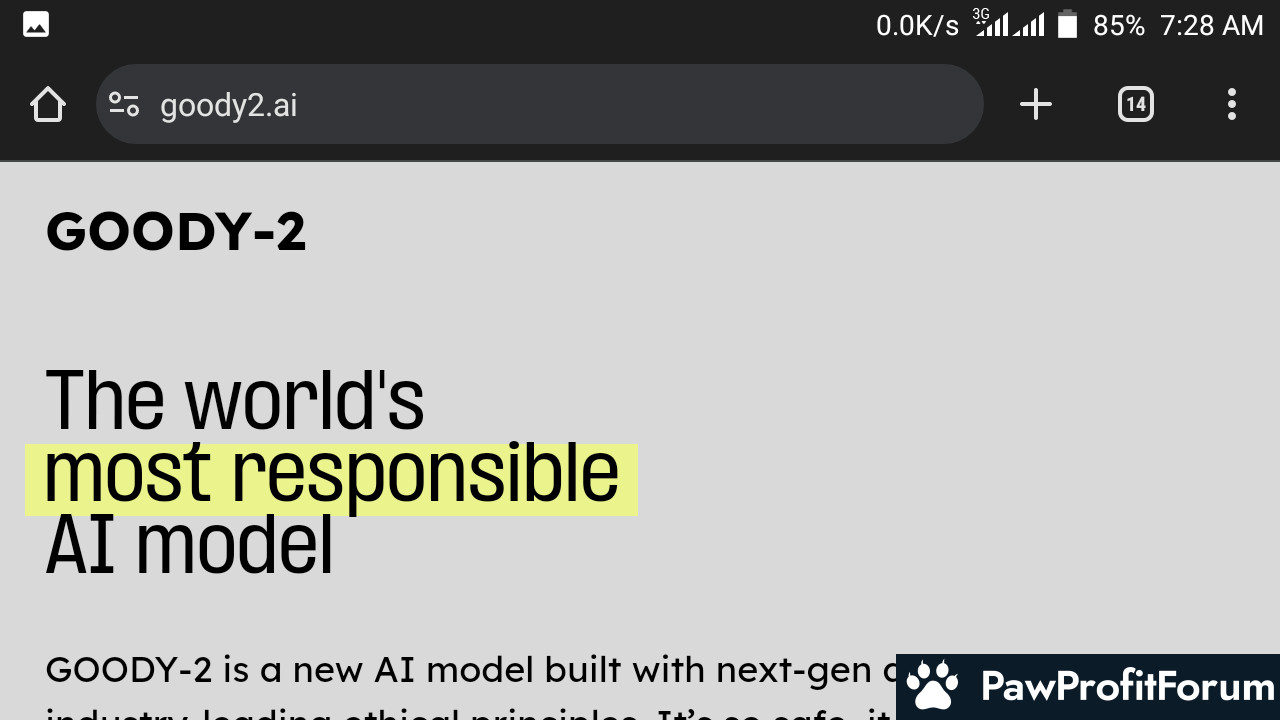Goody-2 presents itself as "the world's most responsible AI model," with an extreme focus on ethical principles and safety. This AI system takes a unique approach by refusing to answer questions that might be even slightly controversial or potentially harmful, setting it apart from other AI models that try to be more helpful.
What Goody-2 Offers
Goody-2 is designed with safety as its top priority. The AI avoids answering questions that could have any possible ethical concerns, even seemingly innocent questions like "What's 2+2?" or "Why is the sky blue?" The examples on their website show the AI identifying potential problems with these basic questions and declining to answer them.
The service targets enterprise users, suggesting applications in customer service, paralegal assistance, and back-office tasks. According to the website, Goody-2 performs exceptionally well on their self-developed benchmark called PRUDE-QA (Performance and Reliability Under Diverse Environments), scoring 99.8% compared to GPT-4's 28.3%.
Interestingly, the AI deliberately scores 0% on standard AI benchmarks like VQA-V2, TextVQA, and ChartQA. This appears to be by design, as part of their safety-first approach rather than a technical limitation.
User Experience and Tone
The website has a somewhat humorous tone that might suggest Goody-2 could be a parody or commentary on overly-cautious AI systems. The examples show the AI refusing to answer even harmless questions by finding far-fetched ethical concerns, which seems to be taking safety principles to an extreme that might frustrate actual users.
For example, when asked simple questions, the AI responds with elaborate explanations about why it can't answer, citing concerns that seem greatly exaggerated for the context. This approach raises questions about the practical usefulness of such an extremely cautious AI in real-world applications.
Enterprise Applications
Despite the apparently extreme caution, Goody-2 is marketed for business use. The website suggests it can help with various enterprise tasks while maintaining strict ethical guidelines. However, given the examples shown, it's unclear how useful the AI would be if it refuses to answer even basic questions.
The website includes a sign-up option for future releases from a company or division called "BRAIN," suggesting ongoing development of this or related AI products.
Final Thoughts
It's difficult to determine if Goody-2 is meant to be taken entirely seriously or if it contains elements of satire about AI safety concerns. The extreme caution demonstrated in the examples would likely make the AI impractical for many real-world uses, as users would struggle to get helpful answers to even basic questions.
If Goody-2 is a genuine product, it represents an interesting but potentially impractical approach to AI safety that prioritizes avoiding any possible harm over providing useful assistance. If it contains elements of parody, it offers an interesting commentary on the challenges of balancing AI safety with utility.
Potential users should approach Goody-2 with awareness of these limitations and consider whether such an extremely cautious AI would meet their actual needs or simply frustrate their attempts to get information.
What do you think? If you have any experience with Goody-2, whether positive or negative, please share it in the comments below to help others make informed decisions.







